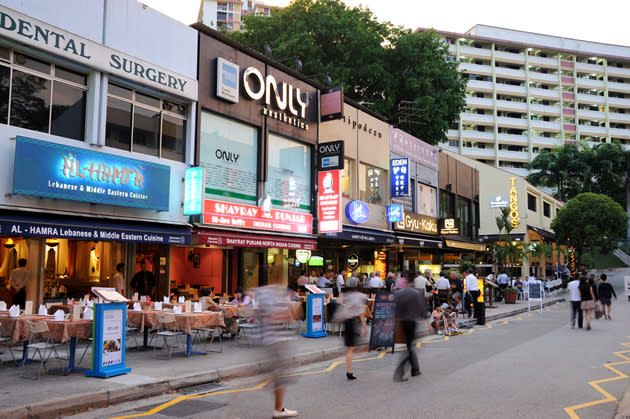Singaporeans are harder to please: service experts

Do we really have bad service standards or are we just plain demanding?
According to service experts, Singaporeans can be harder to please compared to their counterparts in the region.
Ben Llewellyn, regional director of a global market research company IPSOS, said that different countries accept different levels of service, but there are those who are less tolerant of bad service.
"If I compare it across the region, Singaporeans are typically a little bit harder to please in general," said Llewellyn.
"I think this largely comes from there being such a strong service culture in Singapore, and typically, you find that more affluent people have higher standard levels and are often the hardest customers to please," Llewellyn added.
He adds that because Singapore is a country where "everything works", when something doesn't work, it stands out more and causes more of a problem.
This is echoed by others working in the service industry.
Gordon Foo, coordinating director of operations at St James Power Station, described Singaporeans as always expecting tip-top service.
"Sometimes they expect five-star treatment, [such as] fine dining restaurant service in a club environment, which is mostly impossible. We try our best to provide that for our customers, but if we're facing a full house, that will not be possible," Foo said.
"Living in a first world country, most Singaporeans grow up expecting a certain level of service standard as compared to the rest living in Southeast Asia, where they're just out for a night of fun. They don't expect such quality service so anything over and above is a bonus for them," Foo added.
Ugly customer behaviour
Once, a female customer threw a chair at another female customer at St James Power Station after witnessing her boyfriend flirting with the other woman, Foo recalled.
In some cases, customers direct their aggression toward the staff and start abusing them -- sometimes physically but mostly verbally.
"It usually happens once or twice a week, quite common. Some customers are quite aggressive in nature after a few drinks and they react to almost anything," Foo said.
Llewellyn explains that the worst customer behaviour usually comes from customers who have done something wrong, or those who don't understand something so they end up trying to almost bully the company into taking the blame.
"[Customers] have to remember that they are dealing with humans who often don't have any say in corporate or company policy," Llewellyn added.
Yelling "I want to speak to your manager" does not work for everyone too. Typically when customers ask to speak another person in a higher position, managers will often take the same line as the junior staff.
Companies might look at the value that you as a customer provide to the company and decide how they will respond to you. For instance, if it's an airline, they might look at your membership or credit card and work out how valuable you are to the company.
Using the 'customer is always right' card
As much as the mantra "the customer is always right" goes, some companies have actually stepped in to protect their employees instead of siding customers.
"For us, I think the customer is always right until it gets personal. If you start abusing a staff, his or her parents or family, I think that is when we should step in to protect the staff," Foo said.
In protecting service staff and pleasing customers, Thomas Choong, executive director of Chinese fine dining restaurant Xi Yan, said that the best protection is to prepare their staff for foreseeable and unforeseeable circumstances.
"The reality is that the customer is not always right," Choong said.
"A principle we try to adhere to is when others may be wrong, it doesn't mean we have to be as well. We also believe that even when a customer is mistaken, misunderstood, disrespectful or badly behaved, it doesn't mean we should reciprocate in a similar way," Choong added.
More From Yahoo! Finance Singapore

 Yahoo Finance
Yahoo Finance 
